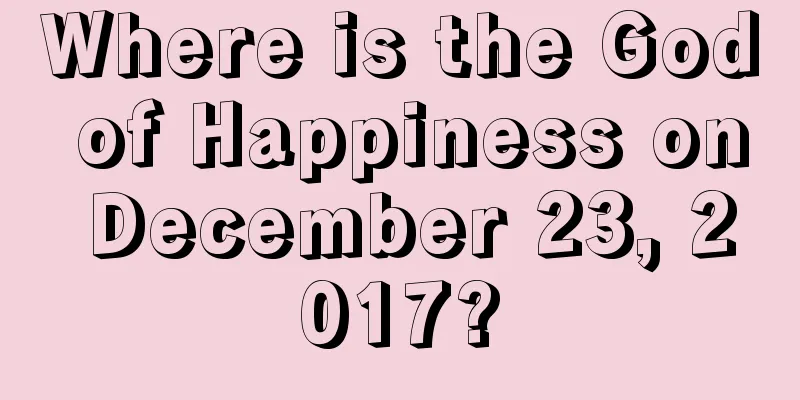What does “Summer Solstice Song” mean?

Chinese people are particularly fond of the number nine, so many places are described using the number nine. So what does the "Summer Solstice Nine-Nine Song" mean? Let’s find out together. The fifth month of the lunar calendar is also known as: Midsummer, Pomegranate Month, Pu Month, and Gao Month. The fifth month of the lunar calendar means the arrival of summer. Let’s take a look at the fifth month of the lunar calendar in 2018 with the Fortune Teller website.What is the “Summer Solstice Song”?From the 19th to the 29th, don’t let go of your fan;Thirty-nine twenty-seven, sweat has torn my clothes; Forty-nine thirty-six, the roof is fully exposed to the sun; On the 45th day of the 59th month, do not enter the house to enjoy the cool air; Sixty-nine fifty-four, cool in the morning and evening; Seventy-nine sixty-three, the quilt is replaced by the sheet; Eighty-nine-seventy-two, cover with a thin quilt; Ninety-nine eighty-one, prepare winter clothes. What does the “Summer Solstice Song” mean?There are not only folk proverbs about the "Nine Days of Cold" in the cold weather, but also another kind of "Nine Days of Cold" song, which starts from the summer solstice every year. It is called "Nine Days of Cold" in the summer solstice, which is applicable in most areas of northern China:From the 19th to the 29th, keep the fan in your hand; from the 39th to the 27th, ice water is as sweet as honey; from the 49th to the 36th, your clothes are soaked with sweat; from the 59th to the 45th, the breeze dances above the trees; from the 69th to the 54th, it is too late to enjoy the cool air; from the 79th to the 63rd, sleep with a sheet; from the 89th to the 72nd, be careful of catching a cold; from the 99th to the 81st. Every family is looking for cotton clothes. "Nine" is a commonly used miscellaneous festival in the Chinese lunar calendar. The ones that have been passed down today are "Winter Nine-Nine" and "Summer Nine-Nine". "Winter Nine Nines" starts from the winter solstice, with every nine days being one nine, and nine nines in a year totaling eighty-one days. The 39th and 49th days of winter are the coldest seasons of the year. "Summer Nine Nines" starts from the summer solstice. Every nine days is one nine, and there are eighty-one days in total every year. Similarly, the 39th and 49th days of winter are the hottest seasons of the year. Nowadays, the contents of "Summer Ninety-Nine" vary from place to place, but they all vividly reflect the relationship between dates and phenology. Since the temperature difference between north and south of my country is small in summer and large in winter, the "Summer Ninety-Nine" does not have the limitations of the "Winter Ninety-Nine" and has a wider scope of application. The following "Song of the Summer Solstice" was found on the elm beams in the main hall of a Yuwang Temple in Laohe City, Hubei Province. It is regarded as the "Summer Solstice" that best reflects the climatic characteristics of most parts of my country. |
<<: What are the taboos during the Summer Solstice? What can and cannot be done?
>>: What does Summer Solstice mean? What’s the weather like during the summer solstice?
Recommend
How can the twelve zodiac signs bring good luck during the Qingming Festival in 2017?
Introduction: Time flies, and the Qingming Festiva...
Recommended nicknames for babies born on the Summer Solstice. Are people born on the Summer Solstice good?
Introduction: The summer solstice usually falls on...
How about a boy born on September 13, 2020? Is his fate smooth?
Introduction: Children born on different days have...
Is the fate of a boy born on the third day of the seventh lunar month in the year of Renyin 2022 good? How's your fortune?
Is the fate of a boy born on the third day of the ...
Is the Chinese New Year the day of New Year’s Eve? When can I buy tickets for the 2021 New Year?
Is the Chinese New Year the day of New Year’s Eve?...
Is the 27th day of the first lunar month in 2018 suitable for offering sacrifices?
Sacrifice is an important cultural custom in our c...
Is it a good time to start renovation on the 19th day of the first lunar month in 2018? What are the Feng Shui do’s and don’ts?
The lunar calendar is one of the traditional Chine...
Is the 15th day of the 11th lunar month in 2020 suitable for moving?
Moving is a happy event, just like building a new ...
Are girls born on May 18th of the lunar calendar in 2018 unlucky?
In traditional numerology, it is believed that eve...
The auspicious time of the fifth day of May 2019, the auspicious and unlucky time query
May is also known as the Pu month. The most prosp...
Is the Beginning of Autumn in 2019 considered the dog days of summer? What does “thunder in autumn means half of the winter harvest” mean?
The arrival of Beginning of Autumn marks the begin...
If you get pregnant in February of the lunar calendar in 2021, when will the baby be born?
If you get pregnant in February of the lunar calen...
Can a funeral be held on the third day of the fifth lunar month in 2021? What does the hexagram indicate?
People believe that the fifth month of the lunar c...
What is the date and day of the Mid-Autumn Festival in 2021? What is the meaning of the Ghost Festival?
Speaking of Mid-Autumn Festival, I believe everyon...
Can I move on the ninth day of the third lunar month in 2019? Is it a good time to move into a new house?
March in the lunar calendar is the third month of...









